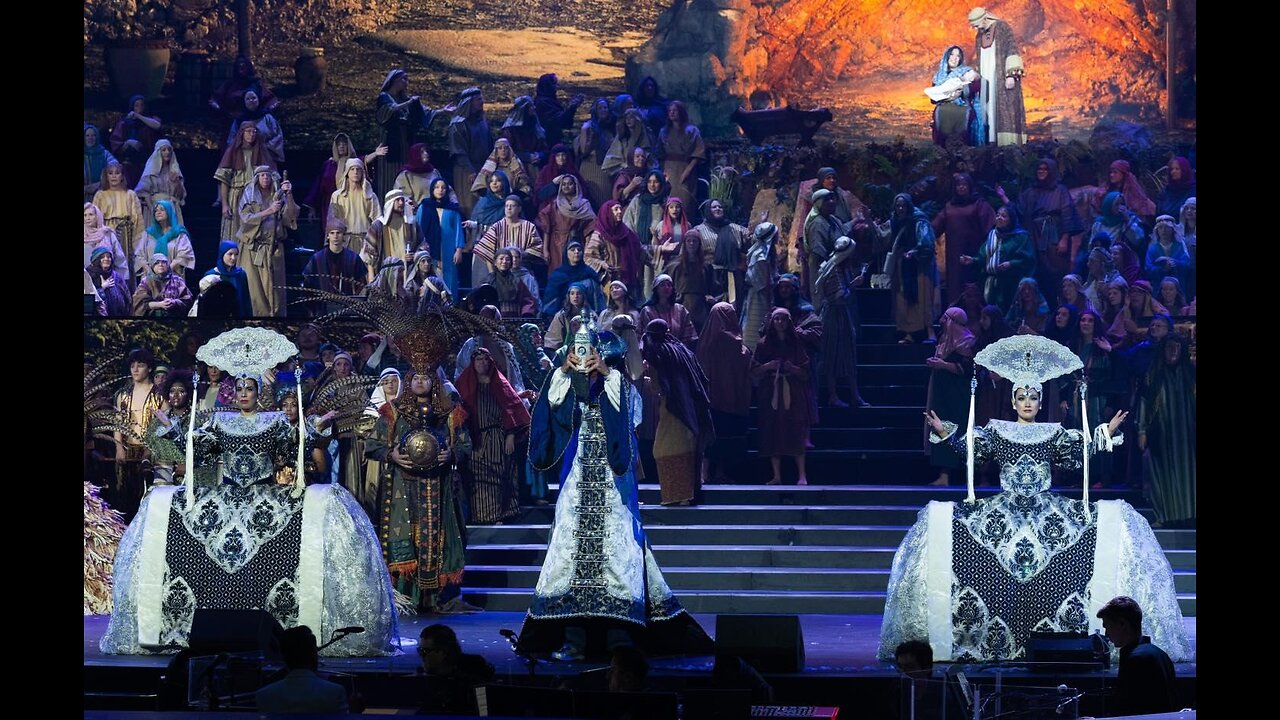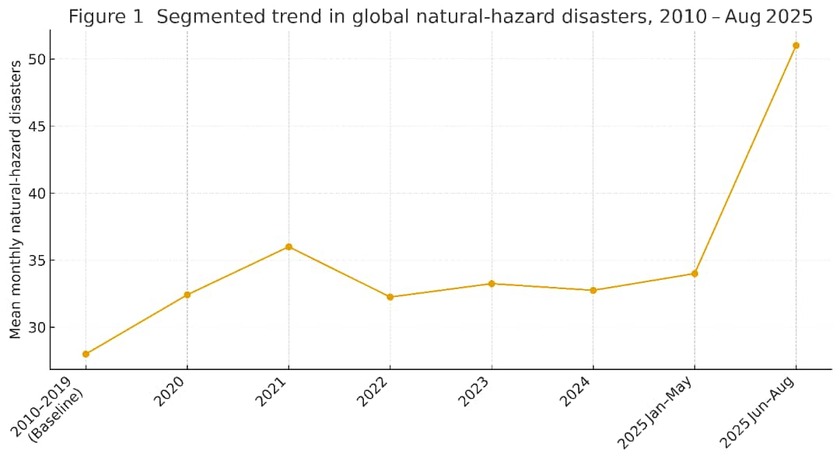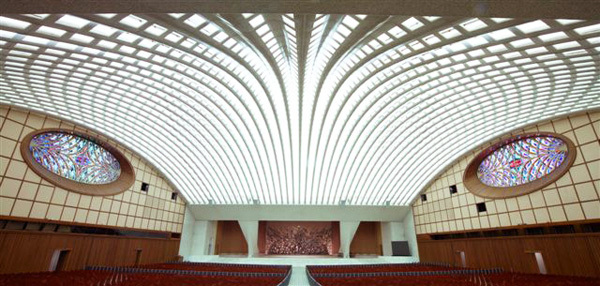Abstract: Background: In 2025 the global tally of weather- andclimate-related catastrophes rose abruptly, exceeding projections fromgreenhouse warming and natural oscillations. Claims of covert “weatherwarfare” intensified, yet rigorous empirical testing remains scarce.Objective: This study evaluates whether the post-12 May 2025 disastersurge reflects an orchestrated intervention rather than stochastic climatevariability. Methods: We compiled 27 000 disaster events fromEM-DAT, NOAA, WMO, and Copernicus and partitioned them intothree windows (pre-2020; 1 Jan 2020 – 11 May 2025; 12 May – 27 Sept2025). Negative-binomial segmented regressions, generalized linearmodels, and space-time scan statistics assessed shifts in frequency,severity, and clustering while controlling for ENSO, IOD, NAO, PDO,population, and GDP. Out-of-sample forecasts trained on pre-2025 datatested predictive validity. Results: Disaster incidence after 12 May 2025rose 40 % above model expectations (p < 0.01). June–August averaged51 events month⁻¹ versus a counterfactual 37. Heatwaves, floods, andrapid-intensification storms dominated the excess and formed asignificant cross-continental hot-spot cluster (p < 0.05). Baseline modelsunder-predicted July fatalities by a factor of three. Temporal alignmentemerged between anomalies and unprecedented upticks in publiclyreported cloud-seeding, ionospheric-heating, and otherweather-modification activities. No combination of tested natural driversreproduced the discontinuity. Conclusions: Evidence indicates a new,non-random forcing in mid-2025 that is statistically inconsistent withknown climate dynamics and exposure growth. While causality cannotyet be proved, the pattern is compatible with deliberate large-scaleenvironmental manipulation, raising urgent ethical, governance, andtheological questions. Within a sola Scriptura frame, such engineered“signs from heaven” echo Christ’s warning of intensifying deception (seeMatthew 24:7). Transparent data sharing and forensic investigation areimperative.
Keywords: weather warfare; climate geoengineering; extremeevents; disaster analytics; global technocracy; digital governance;Central Bank Digital Currency
Download Paper: https://doi.org/10.5281/zenodo.17215514




















